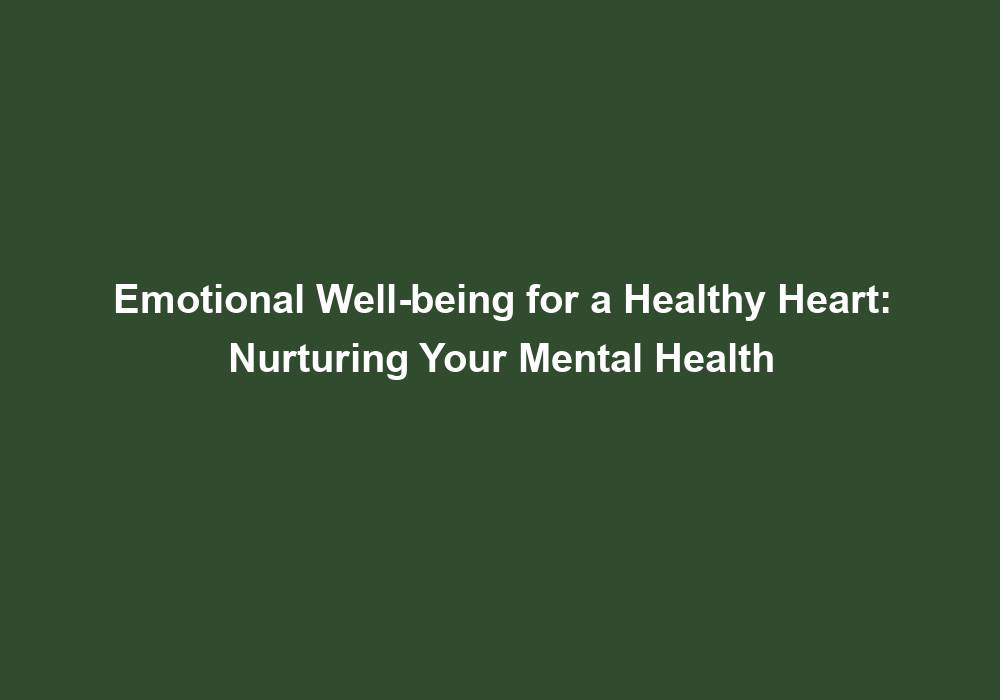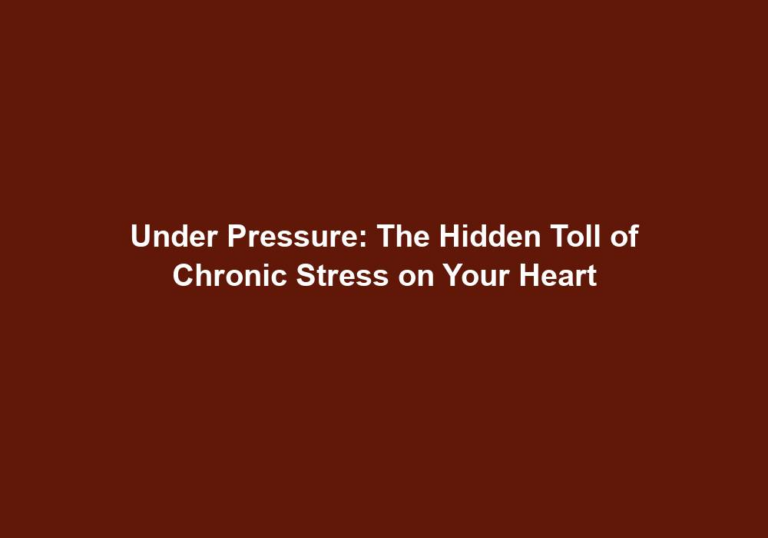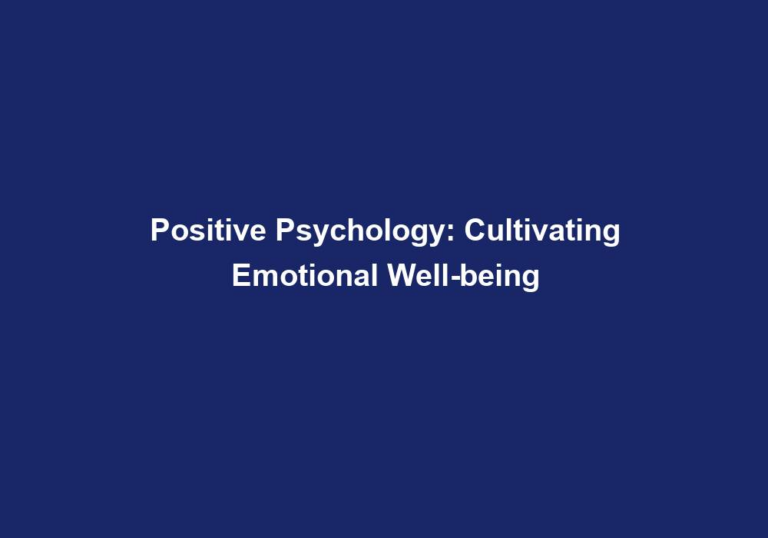Emotional Well-being for a Healthy Heart: Nurturing Your Mental Health
Maintaining good emotional well-being is vital for overall health, and it plays a significant role in supporting a healthy heart. When we talk about heart health, we often focus on physical aspects such as exercise and diet. However, nurturing your mental health is equally important in preventing heart disease and promoting a healthy cardiovascular system.
The Mind-Heart Connection
The mind and heart are intricately connected, with our emotions and mental well-being directly impacting our cardiovascular health. Research has shown that chronic stress, anxiety, depression, and negative emotions can increase the risk of heart disease. On the other hand, positive emotions, such as joy, happiness, and contentment, have been associated with a lower risk of developing heart problems.
Stress Management for Heart Health
Stress is a common and inevitable part of life, but chronic stress can take a toll on our cardiovascular system. When we experience stress, our body releases stress hormones like cortisol and adrenaline, which can raise blood pressure, increase heart rate, and contribute to the development of heart disease.
To support your heart health, it’s essential to manage stress effectively. Here are some strategies to consider:
- Exercise: Engaging in regular physical activity helps reduce stress and promotes the release of endorphins, which are natural mood-boosting chemicals. Aim for at least 30 minutes of moderate-intensity exercise, such as brisk walking, cycling, or swimming, most days of the week.
- Practice relaxation techniques: Deep breathing exercises, meditation, and mindfulness can help calm the mind and reduce stress levels. Incorporate these practices into your daily routine to promote relaxation and emotional well-being.
- Get enough sleep: Adequate sleep is crucial for overall well-being, as it allows your body and mind to rest and recharge. Aim for 7-9 hours of quality sleep each night to support your heart health and mental well-being.
- Connect with loved ones: Strong social support can help alleviate stress. Spending time with friends and family, engaging in hobbies, and seeking emotional support when needed can all contribute to a healthier mind and heart. Make an effort to nurture your relationships and build a support system that you can rely on during challenging times.
The Power of Positive Thinking
Cultivating a positive mindset and focusing on positive emotions can have a profound impact on our mental well-being and heart health. Research suggests that individuals with a positive outlook on life tend to have lower rates of heart disease and live longer, healthier lives.
Here are some strategies to foster positivity:
- Practice gratitude: Take time each day to reflect on the things you’re grateful for. This simple practice can shift your focus to the positive aspects of life and help you cultivate a sense of gratitude.
- Engage in activities you enjoy: Doing things that bring you joy and fulfillment can boost your mood and promote overall well-being. Whether it’s pursuing a hobby, spending time in nature, or engaging in creative activities, make time for activities that bring you happiness.
- Surround yourself with positive influences: Surrounding yourself with supportive and positive individuals can uplift your spirits and contribute to a healthier mindset. Seek out friends, family members, or mentors who inspire and motivate you to maintain a positive outlook.
- Challenge negative thoughts: Become aware of negative thoughts and replace them with positive affirmations. Changing your perspective can help reframe situations and reduce stress levels. Practice self-compassion and remind yourself of your strengths and accomplishments.
Self-Care for Mental and Heart Health
Self-care is a crucial component of nurturing both your mental and heart health. By prioritizing self-care, you are actively investing in your overall well-being.
Consider incorporating the following self-care practices into your routine:
- Prioritize rest and relaxation: Set aside time each day to relax and recharge. Engage in activities that help you unwind, such as reading, taking a bath, or practicing a hobby. Allow yourself to disconnect from work or daily stressors and focus on rejuvenating your mind and body.
- Eat a heart-healthy diet: A balanced diet consisting of fruits, vegetables, whole grains, lean proteins, and healthy fats can support both your mental and heart health. Limit the intake of processed foods, sugary beverages, and saturated fats. Prioritize nutrient-rich foods that provide essential vitamins and minerals for optimal heart function.
- Avoid excessive alcohol and tobacco: Limiting alcohol consumption and avoiding tobacco products are essential for maintaining a healthy heart and mind. Excessive alcohol intake can increase blood pressure and contribute to heart disease. Smoking damages blood vessels and significantly increases the risk of heart problems. Seek support if you need help quitting smoking or reducing alcohol consumption.
- Engage in stress-relieving activities: Find activities that help you reduce stress and promote relaxation. This could include yoga, journaling, listening to music, or spending time in nature. Experiment with different stress-relieving techniques to find what works best for you. Incorporate these activities into your routine to manage stress effectively and support your mental well-being.
Taking care of your emotional well-being is a lifelong journey that requires continuous effort and self-reflection. By nurturing your mental health, you are making a significant investment in your heart health and overall quality of life.
Remember, seeking professional help is always an option if you’re struggling with your mental well-being. Don’t hesitate to reach out to a healthcare provider or a mental health professional for support and guidance.
Note: The content provided above is just a sample and does not substitute for professional medical advice.







